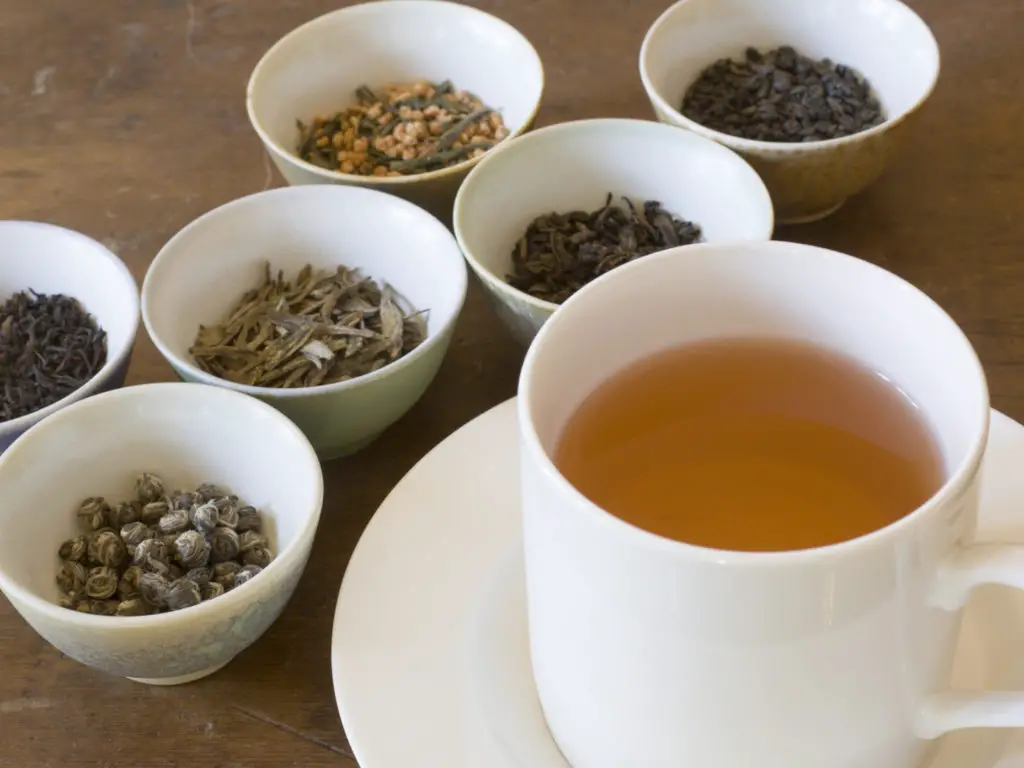Tea has long been used as a medicinal drink that can ease a wide variety of ailments, and using teas for self-care is still an excellent way to stay healthy and improve your quality of life.
To name just a few benefits, tea can help relieve stress, induce sleep, ease menstrual pain, reduce nausea and sooth sore throats.
Here are several kinds of tea that will help alleviate a variety of symptoms.
1. Echinacea
Commonly known as purple coneflowers, Echinacea flowers sooth sore throats and alleviate cold symptoms when brewed in a tea. Also helpful for laryngitis or simply the day after a concert where you screamed the lyrics a bit too loud, Echinacea tea will coax your voice back to life and help it return to normal.
Echinacea tea has been invaluable to me in the past — I often drink it after ski races in subzero temperatures, when I lose my voice from the cold air abrading my throat. While Echinacea on its own certainly does not make the most delicious tea, combining it with mint or lemon — as one tea company does in its Echinacea Plus tea — creates a tangy flavor, both pleasant and healthy to drink, making it one of the best teas for self-care.
2. Chamomile
When it comes to teas for self-care to drink right before bed or throughout the painful days of your period, chamomile tea both helps you sleep and eases menstrual cramps. A common tea available from most brands, chamomile is easy to find in supermarkets or grocery stores, so it is an easily accessible resource when you are suffering from insomnia or bad cramps.
It is also meant to help regulate the bacterial composition of your stomach; people with a temporary form of lactose intolerance or other stomach issues can drink chamomile tea to bolster their stomach. It is crucial to remember, however, that teas for self-care should offer supplementary relief — it is not the end-all be-all of remedies, and you should not use it in lieu of a prescription medication if you are in need of such treatment.
3. Ginger
Ginger tea is best for soothing nausea, whether you are suffering from morning sickness, stomach flu or just a bad hangover. It is particularly helpful to drink this tea right after vomiting to sooth your stomach before you try to eat again. And if you often get carsick, it may be helpful for you to have a thermos of ginger tea with you in the car; drinking it at the first sign of nausea can ease your symptoms and prevent you from being sick.
Ginger tea is not only useful during the (hopefully) rare times you may feel nauseous — it helps reduce bloating as well. A cup of ginger tea after a big meal will improve your digestion, beating back heartburn and stomachaches as well as stopping your stomach from bloating too noticeably.
4. Lemon
Lemon tea helps you recover from a hangover by easing headaches and nausea, as well as cleansing your body, specifically your liver. The idea of drinking lemon water when you wake up is tried and true, a popular trend in recent years, but hot lemon tea is arguably even more useful for making your body feel healthy and refreshed. This tea also helps with weight loss due to its cleansing properties.
While there are a lot of lemon blends on the market, with lemon ginger being the most common, the tea company Twinings sells a delicious tea that is almost purely lemon, with only a dash of white hibiscus. It offers all the benefits of lemon tea in an almost undiluted form, making it both delicious and one of the best teas for self-care.
5. Green
Used as both a medicinal and everyday drink since its origin in ancient China, green tea eases stress and helps relieve headaches, nausea and diarrhea. Often lauded as something of a cure-all, green tea is said to soothe any number of ailments, both physical and emotional.
Nearly every tea brand sells some sort of green tea, so you can find either a cheap or quality tea — whatever you are looking for — anywhere online or at a store like Target or Walmart. But before you buy green tea, bear in mind that although it is a stress reliever, it is caffeinated, so it will calm your mood while also making you more awake. Remember that a stress-relieving tea is not always parallel to a sleep-inducing one.
6. Lavender
Lavender tea, on the other hand, offers the perfect intersection between stress relief and anti-insomnia. The perfect tea for easing the strains of mental illness, lavender tea helps you sleep, relieves stress, improves overall mood and is especially helpful in lessening the insomnia often caused by anxiety or depression.
The tea brand Yogi sells a blend of lavender, chamomile and lemon that is the perfect tea to drink before bed. After all, there is nothing like a cup of warm, soothing tea to put you to sleep. Especially if you are having a rough semester, I recommend curling up in a blanket with your favorite show and a cup of this lavender tea to help you relax before a well-deserved night of rest.
7. Raspberry Leaf
Often marketed toward women, raspberry leaf tea eases various discomforts of pregnancy, such as leg cramps, morning sickness and diarrhea. It also eases menstrual cramps, so if Midol isn’t quite doing the trick for you, it may help to supplement the pain reliever with some tea.
Raspberry leaf tastes like a fruity black tea but without the caffeine, so if you’re not a fan of the heavy earthiness of plain black tea, the lighter flavor of raspberry leaf will come as a nice surprise. When you’re already experiencing extreme discomfort from cramps or nausea, there is no need to put yourself through more misery by drinking an unpleasant tea, and drinking raspberry leaf is certainly not an unpleasant experience.
While you can buy a box of teabags for each of the teas recommended here, note that a $2–$4 box of tea might not be top quality — all tea tastes better in loose-leaf form. While it is significantly more expensive and not exactly practical for the typical broke college student, buying a package of your favorite medicinal tea in loose-leaf form and making it last for a long time is the perfect way to treat yourself every now and then — if you are feeling stressed or ill, you deserve the luxury of drinking a hot cup of delicious and healthy tea.
But no matter what kind you drink, teas for self-care can offer some additional relief when medications aren’t doing the trick, and they are an invaluable resource to add to your home-remedy repertoire.

















